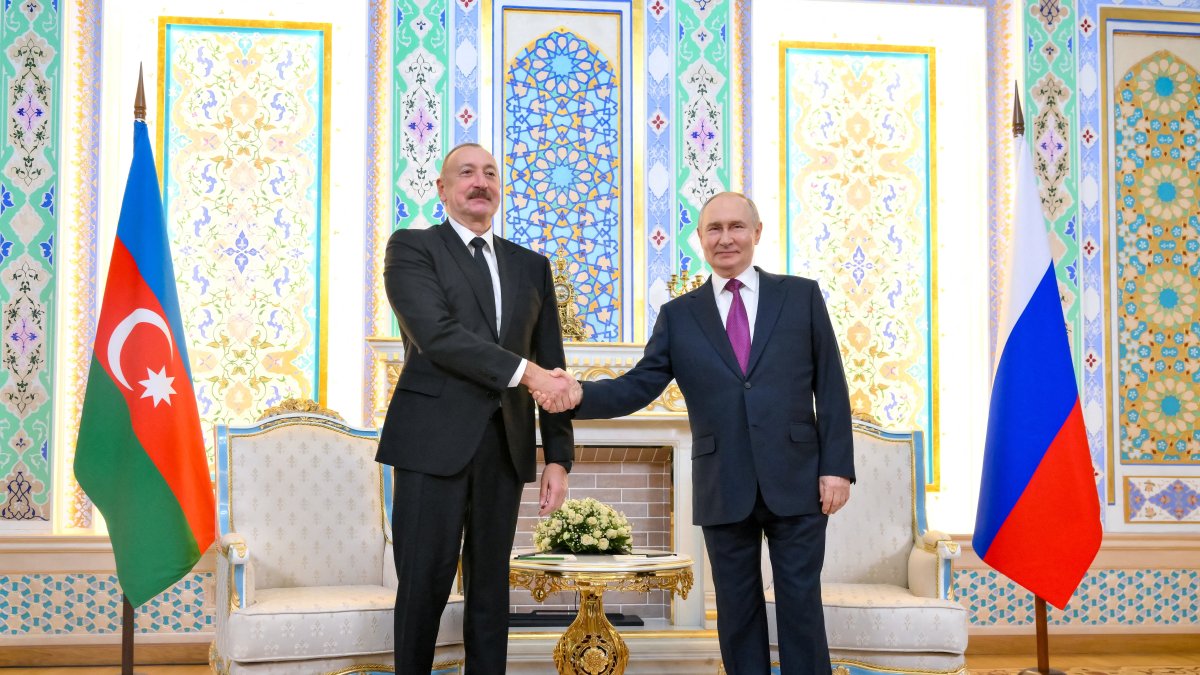The recent meeting between Azerbaijani President Ilham Aliyev and Russian President Vladimir Putin in Dushanbe, Tajikistan, has drawn significant regional and international attention. The dialogue between the two leaders came at a critical time, amid changing dynamics in the South Caucasus and ongoing geopolitical tensions surrounding Russia’s war in Ukraine.
During the meeting, President Putin delivered notably mild and conciliatory messages toward Azerbaijan and its people. He emphasized Russia’s respect for Azerbaijan’s sovereignty and regional role, saying that Moscow “attaches great importance to its partnership with Baku and values the constructive and pragmatic approach of President Aliyev.” Putin also restated his formal apology for the tragic incident in which a civilian Azerbaijan Airlines jet flying from Baku was mistakenly downed by Russian forces, a move that had previously strained bilateral relations. Following the meeting, Russian state media echoed this softer tone, underscoring a broader effort by Moscow to de-escalate tensions and reshape the public perception of Russia within Azerbaijan. A similar tone is witnessed in Azerbaijani media.
Several factors appear to underlie Russia’s renewed approach. Azerbaijan occupies a critical position in Eurasian geopolitics. With its energy resources, growing infrastructure projects and pivotal location connecting the Caspian Basin to Europe and Asia, Azerbaijan is far more than a small regional state; it is a strategic player whose decisions resonate across the wider region.
Russia, meanwhile, is embroiled in a costly and prolonged conflict in Ukraine. The Kremlin thus seeks to avoid additional fronts of friction, especially in its southern neighborhood. Maintaining cooperative relations with Baku allows Moscow to ensure stability in the South Caucasus at a time when its military and diplomatic resources are heavily strained. Putin’s carefully chosen words in Dushanbe reflected this calculation. It was an attempt to show goodwill while maintaining Russia’s relevance in the region.
Another crucial element involves Azerbaijan’s deepening partnership with Türkiye. The strategic and military cooperation between Ankara and Baku, which has continually been strengthened by shared ethnic, linguistic and cultural ties, has created a growing axis of influence that reshapes the regional balance – for Russia, alienating Azerbaijan risks indirectly alienating Türkiye. This NATO member has maintained a complex but functional relationship with Moscow in recent years. Such a rift would further erode Russia’s traditional leverage in the South Caucasus, already challenged by the new realities following the Second Karabakh War.
At the same time, Iran, historically another key regional actor, appears increasingly sidelined in the evolving power dynamics of the region. This reality reinforces Moscow’s incentive to strengthen its ties with Baku, a pragmatic move to balance Ankara’s influence while engaging a country that continues to pursue an independent and multidirectional foreign policy.
For Azerbaijan, the Dushanbe meeting was an opportunity to reaffirm its balanced diplomacy. Baku continues to navigate a careful course, maintaining productive relations with both Western powers and Russia while safeguarding its sovereignty and long-term interests. Aliyev’s measured tone during the talks underscored this strategic equilibrium.
In this light, the Dushanbe meeting represents not a dramatic realignment, but rather a calibrated recalibration. Russia seeks to repair a relationship strained by past incidents and diverging interests, while Azerbaijan remains committed to preserving its strategic flexibility.
Ultimately, the meeting between Aliyev and Putin signals not only a thaw in bilateral relations but also a broader reflection of how mid-sized states like Azerbaijan can shape an evolving geopolitical order. In an era of shifting alignments, Baku’s pragmatic diplomacy underscores its growing role as a stabilizing actor. Azerbaijan has proved itself as a country whose choices carry implications well beyond the South Caucasus.

